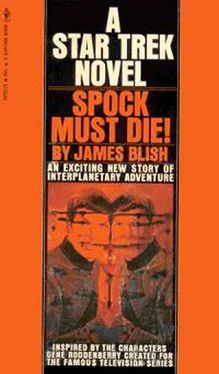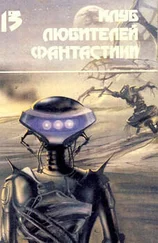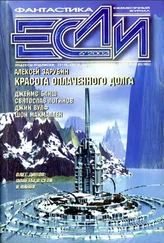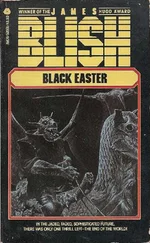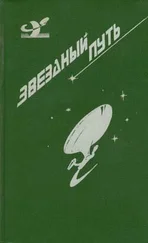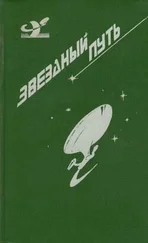Джеймс Блиш - Spock Must Die
Здесь есть возможность читать онлайн «Джеймс Блиш - Spock Must Die» весь текст электронной книги совершенно бесплатно (целиком полную версию без сокращений). В некоторых случаях можно слушать аудио, скачать через торрент в формате fb2 и присутствует краткое содержание. Год выпуска: 1970, ISBN: 1970, Издательство: Bantam Books, Жанр: Космическая фантастика, на английском языке. Описание произведения, (предисловие) а так же отзывы посетителей доступны на портале библиотеки ЛибКат.
- Название:Spock Must Die
- Автор:
- Издательство:Bantam Books
- Жанр:
- Год:1970
- ISBN:9780553107975
- Рейтинг книги:5 / 5. Голосов: 1
-
Избранное:Добавить в избранное
- Отзывы:
-
Ваша оценка:
- 100
- 1
- 2
- 3
- 4
- 5
Spock Must Die: краткое содержание, описание и аннотация
Предлагаем к чтению аннотацию, описание, краткое содержание или предисловие (зависит от того, что написал сам автор книги «Spock Must Die»). Если вы не нашли необходимую информацию о книге — напишите в комментариях, мы постараемся отыскать её.
Spock Must Die — читать онлайн бесплатно полную книгу (весь текст) целиком
Ниже представлен текст книги, разбитый по страницам. Система сохранения места последней прочитанной страницы, позволяет с удобством читать онлайн бесплатно книгу «Spock Must Die», без необходимости каждый раз заново искать на чём Вы остановились. Поставьте закладку, и сможете в любой момент перейти на страницу, на которой закончили чтение.
Интервал:
Закладка:
“Mr. Spock, beginning now, I want you to wear some identifying mark, and see to it that it’s unique and never leaves your person.”
“Then you had better invent it, Captain. Anything that I might choose might also occur to the replicate. And perhaps it should also be unobtrusive, at least for the time being.”
That made sense; Spock One did not want to confuse the more than four hundred and thirty members of the crew with two First Officers until such confusion could no longer be avoided. Neither did Kirk, though he was painfully aware that concealing the problem might equally well compound it.
Kirk drew off his class ring and passed it over. “Use that — and give me your own Command Academy ring. Your, uh, counterpart also has one, of course, but it won’t pass for mine on close inspection. There are no others on this vessel, that I’m sure.”
“No, Captain, no other officer on the Enterprise ever even stood for Command, as the computer will verify.”
“I’ll check it. And again, you’re not to regard this exchange as a sign of preference from me — that issue is far from settled. The exchange is for my convenience only.”
“I quite understand, Captain. A logical precaution.”
Kirk winced. They both were Spock, right down to characteristic turns of phrase and nuances of attitude.
“Good. Now let’s get down to the hard rock. I’ve been talking to Spock Two, and we’ve made a certain amount of progress — though not in a direction I like very much. It wouldn’t surprise me if you’d come to very much the same conclusions he did — but on the other hand, the two of you were disagreeing earlier on, so I’d prefer to rehearse what we said. Briefly, it went like this…”
Spock One listened to the Captain’s account with complete expressionlessness and immobility; but when he was asked for his opinion, Kirk got the next of his many shocks of the day.
“May I suggest, Captain,” Spock One said, “that it is illogical to expect me to view this line of argument with c-complete equanimity? To begin with, you and I are friends — a fact I have never intentionally exploited in any duty situation, but a fact of long standing nevertheless. To find that you would agree to kill any Spock cannot but distort my judgment.”
Kirk, too, listened immobile and without expression, but had he been a cat, his ears would have swiveled straight forward on his head. The hesitations in Spock One’s speech were extremely faint indeed, but, for Spock, they were utterly unprecedented; to Kirk the effect was as startling as though his first officer had been positively stuttering with indignation.
Kirk said carefully, “You were ready to kill me on one occasion. In fact, for a while, you thought you had.”
It was a fearfully cruel thing to have to say; but the time for politeness seemed to be well past.
“I recall that with no pride, Jim, I assure you,” Spock One said, with a kind of stony ruefulness nobody but a man half Vulcan and half human could even have felt, let alone expressed. “But you in turn will recall that I was amok at the time, because of the mating ceremony. Do you wish me back in that irrational state of mind? Or want me to welcome something similar in you?”
“Of course not. Quite the opposite. What I want from you now is the best logic you’ve ever been able to bring to bear, on any situation whatsodamnever.”
“Nothing else will serve, Captain, it seems to me. So let me further observe that my counterpart’s proposal is not conservative. There is a certain justice in his observation that our joint presence on the ship will be disturbing for both of us, but we are not likely to be disturbed about the same subjects at the same time; hence you could use both of us by asking both our opinions, and striking a balance between them.” The ghostly hesitation was gone now — had Kirk imagined it in the first place? “Furthermore, Captain, this whole question of identity is operationally meaningless. I can assure you that I know I am the original — but this knowledge is not false even if I am in fact the replicate.”
“You’ll have to explain further, I’m afraid.” But the difficulty of the argument was in itself reassuringly Spocklike — falsely reassuring, Kirk knew with regret.
“If I am the replicate, I have a complete, continuous set of memories which were replicated with me. As far as I can know, all these memories represent real experiences, and there is no break in continuity in them, nor in my attitudes or abilities. Therefore, both for my purposes and for yours, either of us is the original, and there is no reason to prefer one over the other. A difference which makes no difference is no difference.”
“McCoy’s Paradox,” Kirk said.
“Is that one of the classic paradoxes? I am not familiar with it. I was quoting Korzybski.”
“No, Doc invented it only two weeks ago — but abruptly it has come to life.” Kirk paused. He was not himself expert in logic, and now he was confronted by two experts, each arguing opposite sides of a life-and-death problem, and with apparently equal cogency. “Mr. Spock, I shall of course inform you when I’ve made my decision, but it’s not a matter on which I want to shoot from the hip. For the present, I want you and your counterpart to stand alternate half-day watches. That way, I get both your services continuously, I don’t have to choose between you yet, and I don’t have to flip a coin to decide which of you has to be moved out of your quarters.”
“An ideal interim solution,” Spock One said, arising.
For you, maybe, Kirk thought as he watched him go out. But your — brother — wants you dead.
He sighed and touched the intercom. “Doc? Kirk here. Break out the headache pills, I’m coming to pay you a visit.”
Chapter Four — A PROBLEM IN DETECTION
From the Captain’s Log, Star Date 4019.2:
I have appraised the Department heads of the situation and asked for suggestions. For the time being I have not informed the rest of the crew, in the interests of morale. Since any given one of them is seldom on the bridge, I am spared having to explain away the odd spectacle of Mr. Spock on duty all ten periods of the day.
To this decision, however, Kirk had to allow two exceptions. One was Yeoman Janice Rand, who served Kirk as a combination of executive secretary, valet and military aide, and as such was usually made privy to anything that was going on; ordinarily she needed to know, and in any event it was a lot easier to tell her how matters stood than to keep them from her. The other was Christine Chapel, McCoy’s head nurse; not only was she Doc’s surgical assistant, but she held several degrees in medical research, and hence would be closely involved in whatever attempts McCoy might invent to distinguish one Spock from another.
Both were highly professional career woman, coequal with male crewmen of the same rank during duty hours and expected to deliver the same level of efficient performance. Neither, however, was able to suppress a certain gleam of anticipation on being told that there were now two Spocks aboard the Starship USS Enterprise.
With Yeoman Rand, this was only normal and natural. She practiced a protective, freewheeling interest in men in general to keep herself and the Captain from becoming dangerously involved with each other. Kirk was, however, surprised to see it in Nurse Chapel. She came as close to being a professional confidant as the irascible McCoy was ever likely to find; acting both as a bond between them and a preventive against its transgressing onto the personal was the fact that she, too, was the veteran of a broken romance, and from it had apparently found a measure of contentment in a Starfleet Service.
What was the source of the oddly overt response that women of all ages and degrees of experience seemed to feel toward Spock? Kirk had no answer, but he had two theories, switching from one to the other according to his mood. One was that it was a simple challenge-and-response situation: he may be cold and unresponsive to other women, but if I had the chance, I could get through to him! The other, more complex theory seemed more plausible to Kirk only in his moments of depression: that most white crewwomen, still the inheritors after two centuries of vestiges of the shameful racial prejudices of their largely Anglo-American forebears, saw in the Vulcan half-breed — who after all had not sprung from any Earthly colored stock — a “safe” way of breaking with those vestigial prejudices — and at the same time, perhaps, satisfying the sexual curiosity which had probably been at the bottom of them from the beginning.
Читать дальшеИнтервал:
Закладка:
Похожие книги на «Spock Must Die»
Представляем Вашему вниманию похожие книги на «Spock Must Die» списком для выбора. Мы отобрали схожую по названию и смыслу литературу в надежде предоставить читателям больше вариантов отыскать новые, интересные, ещё непрочитанные произведения.
Обсуждение, отзывы о книге «Spock Must Die» и просто собственные мнения читателей. Оставьте ваши комментарии, напишите, что Вы думаете о произведении, его смысле или главных героях. Укажите что конкретно понравилось, а что нет, и почему Вы так считаете.
